Since its launch 10 years ago, Ottawa’s LGBT film festival, Inside Out, has brought some of the world’s best queer cinema to the city in a compact three-day format.
During its early years, the festival was presented at the ByTowne Cinema on Rideau Street. But since 2016, it’s been hosted at the National Gallery of Canada, a nod to its increasing swankiness.
Despite its small stature, there’s a wealth of work on offer and Xtra has scoured the program to find a few of the standouts.
Chavela
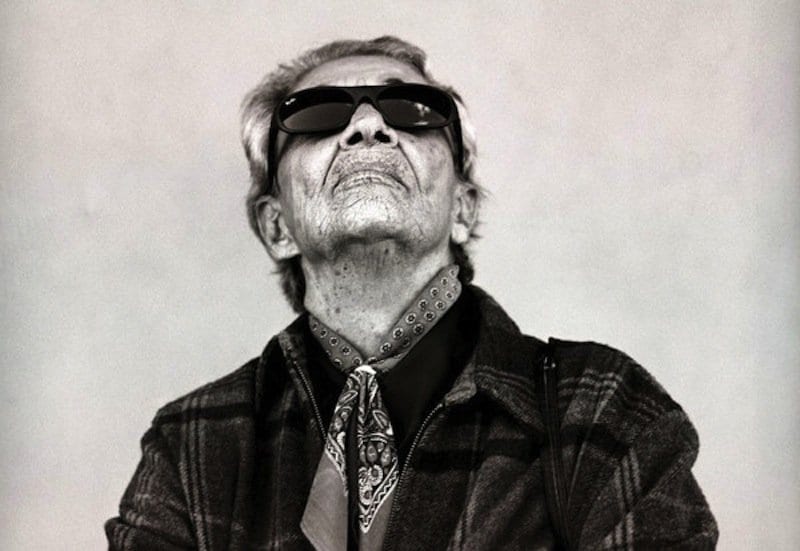
You may not know the name Chavela Vargas. But you’ve probably heard her sing. Her one-of-a-kind vocals have featured in Alejandro González Iñárritu’s Babel, Julie Taymor’s Frida, and countless Pedro Almodóvar films. Daresha Kyi and Catherine Gund’s doc follows the musician’s journey from tomboy childhood through stardom, her fall from grace, and eventual return to the stage.
The film operates as both a poignant story of redemption and a tale of queer liberation. An unapologetic butch in Mexico during the 1950s, Vargas shunned the usual trappings of femininity that other singers of her generation embraced, ditching high heels and big hair for pants and ponchos.
But behind her tough-as-nails swagger, her inner fragility, medicated by a lifetime of alcohol, nearly destroyed her career. Rich and haunting, powerful and inflected with pain, her unique sound is the ideal soundtrack for the story of a woman who became an unintentional queer icon simply by refusing to conform.
The Feels
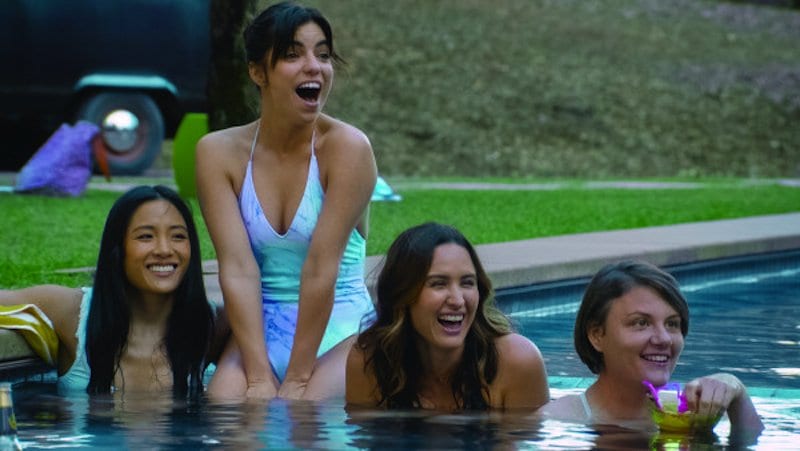
Credit: Courtesy Inside Out
The Feels isn’t an easy film to pin down. American director Jenée LaMarque’s follow-up to 2013’s The Pretty One starts off like a raunchy laugh-fest. Lu (Angela Trimbur) and Andi (Constance Wu of ABC’s Fresh Off the Boat) star as a lesbian couple preparing to tie the knot. But when things get a little wild during their dual bachelorette party, Lu accidentally tells their friends that she’s never had an orgasm in her life, thanks ironically to some ecstasy supplied her sister Nikki (LaMarque).
As the reality of her predicament sinks in for her soon-to-be wife, the film suddenly transforms into a tear-jerking portrait of a relationship on the brink of collapse. Anchored by strong performances from Josh Fadem (as Andi’s childhood best friend) and comedian Ever Mainard (as their butch chef friend), it evolves into a strange brand of dark comedy, where a happy ending seems entirely implausible, despite the occasional jokes peppered throughout.
The Feels shows us that just as love never fits easily into a mould, films about love seem infinitely more plausible when they’re willing to step outside the neat conventions of genre.
Signature Move
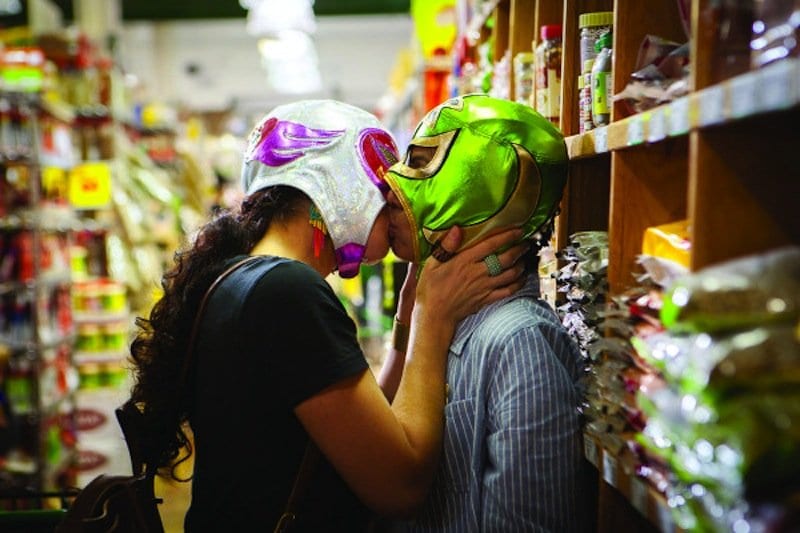
Signature Move follows a queer woman working as an immigration lawyer and caring for her conservative Muslim mother but falls in love with a free-spirited woman. Credit: Courtesy Inside Out
A quick survey of any crowd-funding platform will quickly reveal countless shattered dreams of budding filmmakers who sought and failed to find funding for their work. Fawzi Mirza could have been one of those. But when she posted her own heartfelt video in March 2016 requesting money from strangers to make a movie, something clicked. The internet rallied and within less than four weeks, she had the cash she needed to finance her debut feature.
Signature Move follows Zaynab (Mirza), a queer woman working as an immigration lawyer and caring for her conservative Muslim mother (Shabana Azmi). Her life is largely ho-hum, until she meets Alma (Sari Sanchez), a free-spirited babe with a penchant for tequila shots.
Though sexual sparks quickly fly, their relationship has a few roadblocks. While Alma is out to her family and comfortable with her sexuality, Zaynab is neither, a clash that threatens to quash their budding romance. With its mix of dry humour and tear-jerking moments, the film succeeds in reimagining the classic rom-com through a queer cross-cultural lens.
Rebels On Pointe
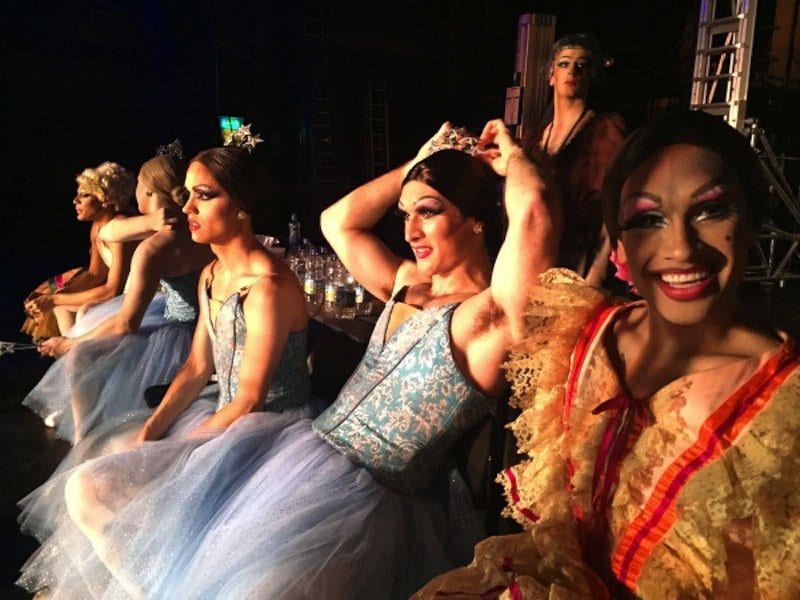
Credit: Courtesy Inside Out
While many contemporary choreographers enjoy mixing up roles, ballet still remains a largely gendered art form. This difference is perhaps best typified in the shoes dancers wear — the hard-blocked slippers that allow dancers to stand on their toes are reserved exclusively for women.
It has also been (and in many places continues to be) a highly homophobic corner of the dance world. The pressure for boys to butch-up is often greater in ballet school than in the schoolyard.
This is what makes Les Ballets Trockadero de Monte Carlo unique. Known to their fans at the Trocks, the all-gay group has been getting laughs and pushing buttons by thumbing their noses at convention since 1974.
While comedy is key to the company’s onstage antics, Canadian filmmaker Bobbi Jo Hart’s documentary offers a glimpse behind the laughs, painting a moving portrait of a group of men who’ve been passed over by the mainstream dance world, shunned by their families, and during the height of AIDS, lost half their ranks.
Mixing archival footage with dressing room hijinks and candid interviews, Rebels reminds us of the time-honoured trope nearly every queer can relate to; sometimes laughter really is the best cure for pain.
The Untold Tales of Armistead Maupin
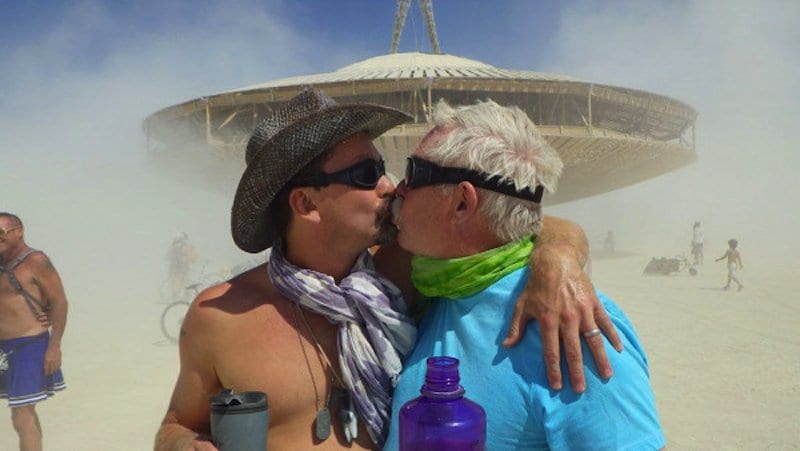
Armistead Maupin was an unlikely candidate to become one the queer literary world’s most important voices. Born to a Confederate flag–loving family in America’s Deep South, he was a staunch conservative well into his 20s, working for notorious homophobe Jesse Helms and rubbing shoulders with Richard Nixon.
But while returning from his tour of duty in Vietnam, he stopped over on the US naval base Treasure Island on the California coast. There, he caught a glimpse of San Francisco through the mists and just knew somehow that was where he had to be.
Director Jennifer M. Kroot’s follow-up to 2014’s To Be Takei , tells you everything you’ve ever wanted to know about the man behind Tales of the City; the celebrated newspaper column eventually adapted as a collection of novels and a controversial TV series.
Chronicling life in the Castro during the 1970s, it was the first depiction of unapologetically queer characters in a mainstream publication. Though it takes Maupin’s story as its centrepiece, Untold Tales also succeeds in providing an unexpectedly rich portrait of a pivotal period in queer history.

 Why you can trust Xtra
Why you can trust Xtra


